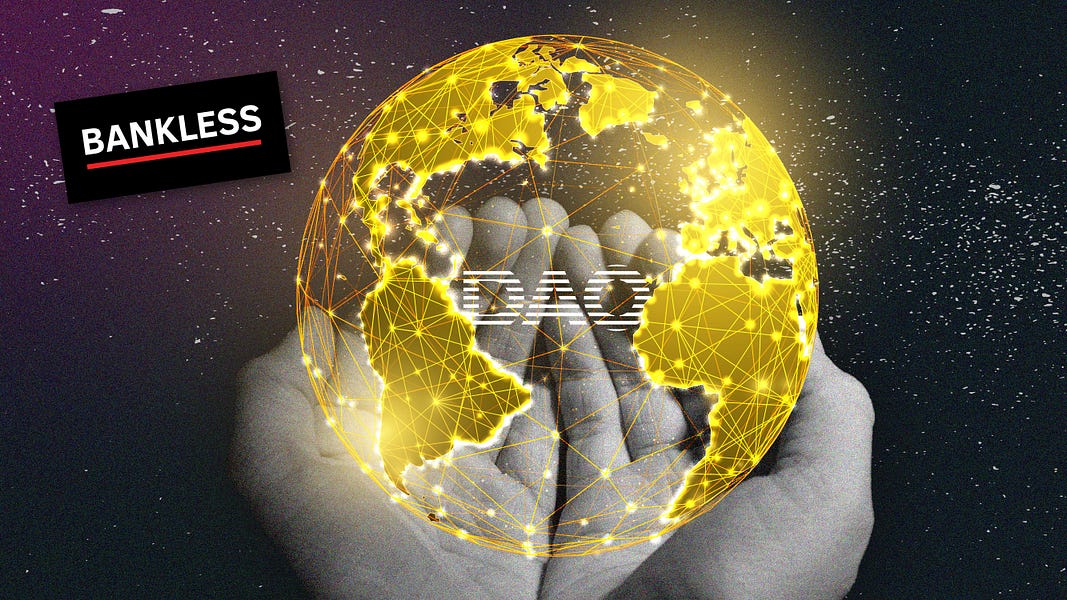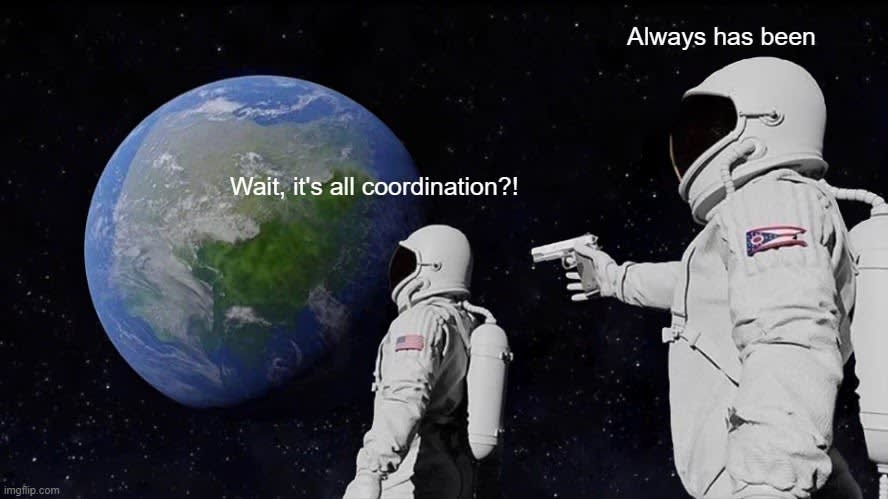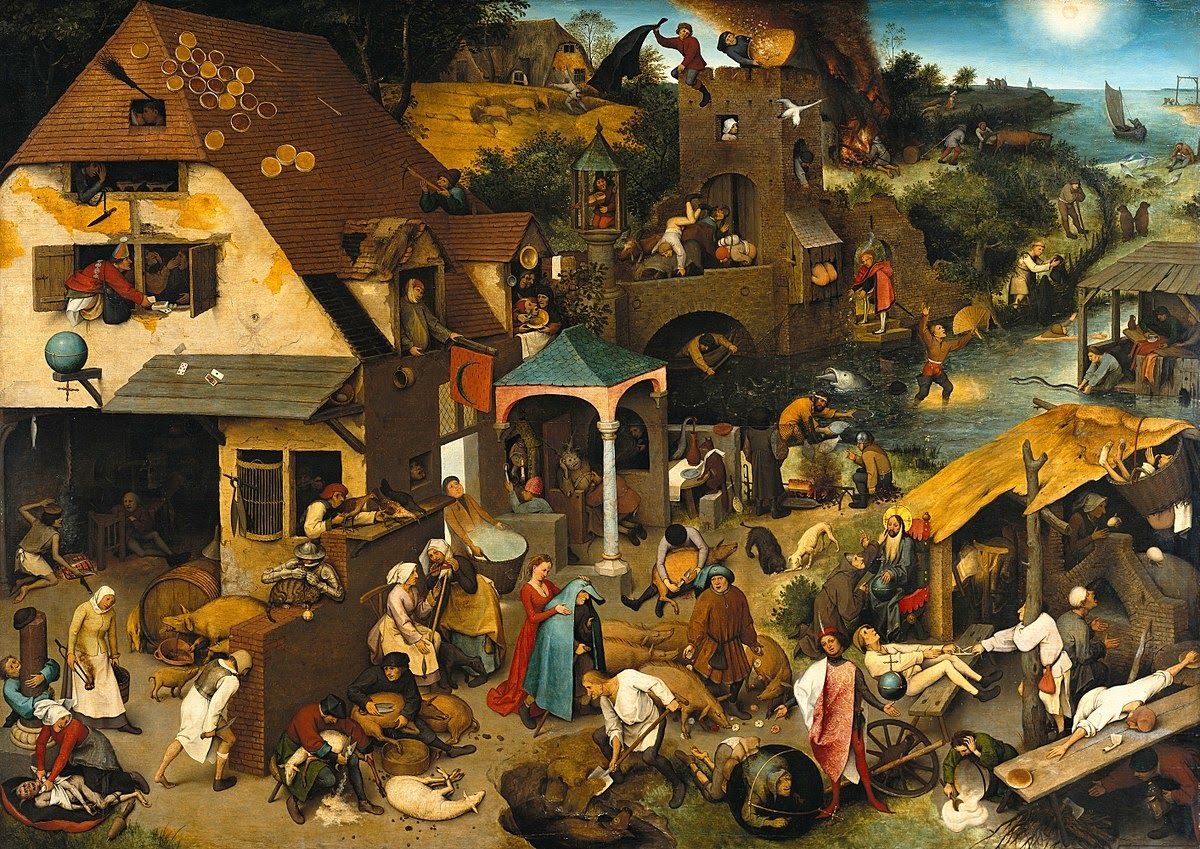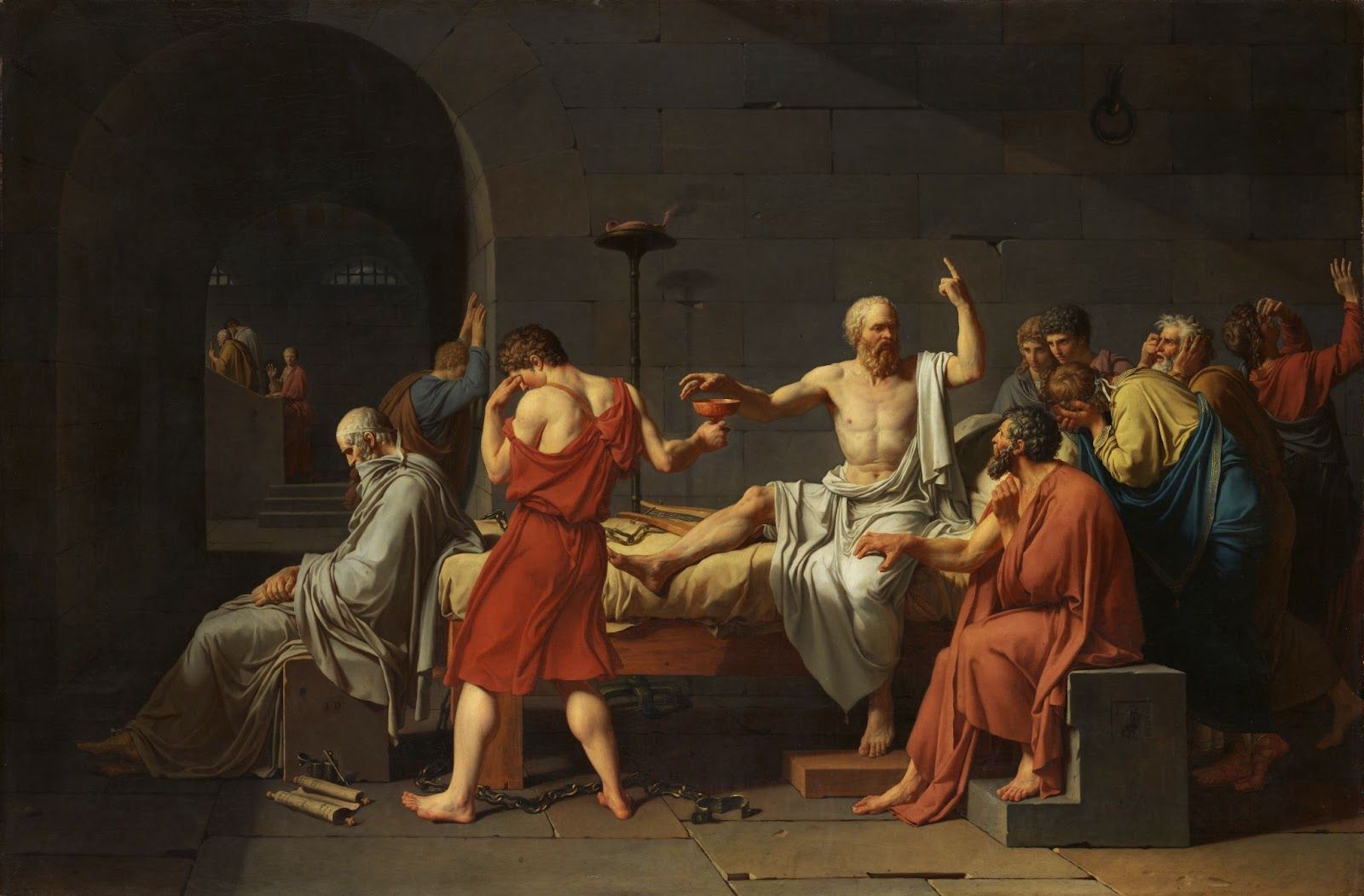DAOs are the Opportunity of a Lifetime

Dear Bankless Nation,
Human civilization is a massive experiment in coordination.
From whom you live with to the United Nations, its coordination all the way down.

Turns out, coordination is tricky. We’ve tried all forms: Monarchies, dictatorships, co-ops, democracies, republics, committees, and countless permutations. And while DAOs are just another form of coordination, they represent a unique opportunity: Coordination unfettered by demographic constraints.
Age, gender, religion, nationality, sex, socioeconomic status—none of that matters. DAOs are the most equitable organizational primitive of all time because they exist purely in the digital realm.
Whether you’re a middle-aged affluent suburban mom or a teenager living in a slum using a public computer, you’re both on equal footing. When has that ever been possible in the history of humanity?
Never.
That’s why it’s imperative that we build the right organizational structures. When we’re talking about the future of equitable human coordination, all bets are off. We have to succeed. A rising tide lifts all boats.
Today, Samantha goes deep on this once in an epoch opportunity and why we can’t afford to stop building.
- RSA
Guest Writer: Samantha is the Talent Scout for the Writers Guild in the BanklessDAO. Her traditional 9-5 job focuses on making human-to-computer interactions as easy as having a conversation. She loves thinking about the big questions of the human experience and finding out how Web3 fits in.
Coordination is hard.
We’ve been getting it wrong for eons—our ancestors could have told us so. Kingdoms have risen and fallen, ancient religions so old they’re not known to man today have burned hot then sputtered out, nation-states have conquered and crashed, then conquered again. All of history has been a massive coordination effort.
And quite frankly, it’s been a bit of a mess.
Time and time again, people have tried different mechanisms to corral humans into working together for the common good. We’ve known this since right around the Cradle of Civilization (give or take a few centuries) that we need something to prevent people from stealing each others’ livestock or killing their clan leader. And people—smart people, I may add—have taken a crack at it. Hobbes and Locke and Machiavelli. Hammurabi and Lao-tzu and Buddha. Jefferson and Ghandi and MLK.
Most wars sprouted from coordination problems, from ideological disagreements to miscommunications—just read any history book or Shakespeare play. We’ve failed at coordinating quite epically not just once, but many, many times.

We’ve been working on this for all of recorded human history.
And we haven’t quite gotten it right yet, have we?
DAOs are new, but fighting for better coordination mechanisms isn’t. In truth, it’s a rather old fight. But it’s critically important, and even more so now because DAOs are our single best chance at getting it right.
Yep, I said it. This is the best chance humanity has ever had to win at coordination once and for all.
Let me explain.
A once-in-an-epoch opportunity….
Our situation at hand is markedly different from that of the coordination attempts of years past.
Throughout all of human history, you had to be in power to try your hand at large-scale coordination. You had to be born with royal blood, deemed an ancient prophet, elected to office, or lucky enough to be in a constitutional convention to have any say in how societies organize. Human coordination—save for a few revolutions—has never been in the hands of the masses.

Enter DAOs.
The Decentralized Autonomous Organization is the greatest governance and coordination experiment to gain real community traction in centuries.
We have—and are currently building—trustless, permissionless structures that allow anyone in the world to join an organization they believe in, put forth their talents, and earn money to do it. When I say anyone, I mean that in the strongest sense of the word: DAOs are agnostic to age, gender, race, ethnic background, economic status, nationality, residence, and any other demographic identifier that might prevent someone from working and earning money for something they believe in.
In the Web3 environment where anonymity is welcomed and encouraged, nothing about your background can be used to prevent you from jumping in, getting to work, and earning money.
This is a big f---ing deal.
We absolutely cannot take this lightly. We have a real opportunity here: to find the human coordination solutions we (the all-of-mankind “we”) have been seeking ever since humans first started walking upright. These solutions aren’t just elegantly built atop code—they’re our first real shot at a universally equitable work environment.
An equitable work environment is where anyone can work for what they want to achieve because everyone has the same tools to do so.
Let me provide some examples.
Ageism doesn’t exist—want to be a governance leader at 16 or 75? Prove your talents and you’re in. And that 16-year-old will get paid without needing permission from their parents to open a bank account—a highly inequitable and ageist rule that still exists in many countries today. If workers under 18 can pay taxes to their government, they should be able to open and operate their own bank account. If workers over 65 can pay taxes to their government, they should be able to find paying work without age discrimination.
DAOs solve both of these problems.
Geographic borders don’t exist either. The DAO you want to join is halfway across the world? Come right in. You’ll get paid without having to worry about work permits and visas. Your unique perspective will be welcomed if you want to reveal it, or you can keep your timezone anonymous. No one has to know anything you don’t want them to. I work with people in Australia, Nigeria, Spain, and the UAE. And I work with people who I have no earthly idea where they’re from—because why does it matter where you call home? Why would we ever limit our coordination abilities on something so trivial as the coordinates of the globe on which you stand?
The motherhood penalty—when women of childbearing years struggle to get promoted because they’re a corporate “risk” if they have children—is not anywhere to be seen in a DAO. This phenomenon occurs around womens’ early 30s and is likely the biggest culprit of the pay gap in legacy companies today. DAOs do not concern themselves with claims of childbearing “risks.”
They pay and promote people based on work quality and nothing else. Speaking for myself, no one has asked me my age or if I want to have children in the future—I can’t say the same about my legacy jobs, especially after living in areas where many women start families young. It’s a breath of fresh air, to say the least.
I could write a tome on the equitable work and coordination structures DAOs create, but let me pause to say: we are already well on our way to getting this human coordination thing right. And, to improve the systems we’re already building, we don’t have to wait for the next election or coup d’état.
Improvements are happening right now all around us.
People have power in their hands, and this power is not being wasted. This power is busy building communities. It’s generating ideas. It’s shipping products. It’s building governance structures at the top level and day-to-day coordination methods at the ground level. It’s out there working, not fighting over imaginary borders or squabbling over who’s in what seat of which government. This power is being put to work: and we’re getting a hell of a lot better coordination mechanisms out of it.
Is your heart not racing right now?
To borrow a phrase: The world truly is our oyster.
..but it doesn’t come on a silver platter.
I do worry a bit, you know?
I worry that DAOs will, one by one, give up the good fight. I worry that they’ll abandon their blue-sky thinking and turn into legacy corporations with all the same problems as the ones we have today. I worry that people will dismiss DAOs as weird crypto clubs and not see that the fight for equitable, decentralized human coordination systems is long and hard, but worth it.

I worry that new DAO joiners won’t see that this fight doesn’t always look noble or valiant. It’s endless edits in a Google Doc that’s slowly morphing into a small constitution of sorts. It’s late-night DMing to answer questions from new DAO members. It’s documenting processes on kanban boards and Notion pages. It’s a lot of milling around in Discord, knowing there’s a lot to do but not quite knowing what to do first. Fighting the good fight isn’t all token voting and roses, and I worry that people will be smacked in the face when they realize that.
In reality, fighting the good fight looks a lot like hard, boring work.
But what I worry about most of all is that DAO contributors won’t see this inherent need for rebuilding and will slowly let legacy structures seep into their channels and their conversations. This ever-so-slowly seeping can happen in ways that we don’t even realize. Humans are social animals—we learn from our communities. And we all grew up in and around centralized systems. Sometimes it’s hard to look at a proposal or protocol and even discern if it’s considered “centralized” or “decentralized.” People have created entirely new Layer 1s because they disagreed on what decentralization is—so how are we supposed to figure it out? How do I, someone who has been lucky enough to receive boundless support from my digital and non-digital communities throughout my Web3 journey, know what’s equitable?
I never said these would be easy questions. There’s one way forward, and that’s, well, forward.
We keep pushing. We keep questioning, iterating, and ideating. We do everything but stop. There’s too much riding on this to stop now.
We can win the coordination game. Because we get to build it.
Luckily, we can build that platter ourselves.
So, how do we build our coordination structures? If no one’s gotten it right thus far, how do we get it right?
We work hard, day in and day out.
In my day-to-day DAO experience, it looks a lot like this:
We set things up just to see them burn and crumble. And we do it again. We do this because the knowledge that one thing didn’t work brings us one step closer to the thing that does work. We burn willingly, knowing our next attempt will be better. And when it’s not, we burn that willingly, too. We keep matches on hand and don’t shy away from the task. Barren ground is just a blank slate to build a better structure on.
We spend a lot of time educating ourselves. The strength of a DAO’s ideas is the sum of its members’ ideas. We need to read and watch and listen more than we’re used to. We need to interact with other DAOs and protocols and chains to see what they do and take note of if we like it or not. We need to immerse ourselves in the pursuit of knowledge, both from the legacy world and the Web3 world. If we’re all doing it, all ships rise. Grow your DAO’s knowledge by growing your own. It’s a win-win.
We embrace the dull and the mundane to get to the glorious and the rewarding. No one’s ever made a splash just by project-managing. But there was a hell of a lot of project management that went into building Rome, institutionalizing modern religions into what we know today, and passing the 2021 U.S. infrastructure bill. Making a lasting change isn’t a fun ride from start to finish. The dull is married to the glorious. The mundane is kin to the rewarding. Make friends with tasks you don’t like. It’s the only way to get to the ones you do like, and the ones that make headlines.
We practice the golden rule 24/7. DAOs would not exist without people building them. So we must treat everyone with the kindness and respect we would want for ourselves. We send tips, we reply to messages, we react with emojis, we encourage members to take days off when they need them. We always, always support each other. Our members are the lifeblood of the DAO. We must keep them strong.
It’s painfully simple, what we have to do. Build? Learn? Those are one-word tasks. But they’re not easy—and I’m not sure they ever will be, or that I would want them to be.
As DAO members, we need to understand just how much rests on our keyboards, our audio channels, and our Community Calls. When we’re tired and beaten-down, we need to look back at those ancient kings and prophets and conquerors.
Because we have a chance to do what they couldn’t.
Now, let’s all get back to changing human life as we know it, alright?
Action steps
- 📖 Read The Ultimate DAO Report by Gitcoin DAO & BanklessDAO
- 🎓 Learn How to Get Paid by DAOs
- ✅ Subscribe to the State of the DAOs by BanklessDAO